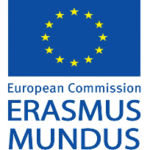Studying abroad in Austria is not only an academic opportunity but also a chance to gain work experience, support yourself financially, and integrate into Austrian society. For many international students, working while studying in Austria can be daunting, while for other people, part-time work has become an important part of daily life, whether it’s earning extra income, gaining skills in your field, or simply exploring Austria’s work culture.
But before you start applying for jobs, it’s essential to understand the rules that apply to working as a student in Austria. Regulations vary depending on your nationality (EU/EEA vs. non-EU/third-country nationals), your type of visa or residence permit, and even the number of hours you intend to work.
This guide offers a comprehensive breakdown of student work regulations in Austria and highlights the opportunities available for both EU and non-EU students.
Table of Contents
Why Work While Studying in Austria?
Working part-time as a student in Austria comes with several advantages:
- Financial Support: Cover living expenses such as rent, groceries, and leisure activities.
- Work Experience: Gain practical skills and improve your CV with Austrian work experience.
- Cultural Integration: Meet locals, practice your German, and learn about Austrian work culture.
- Networking Opportunities: Connect with companies that may offer full-time employment after graduation.
- Language Skills: Enhance your German proficiency in a real-world setting
While Austria offers plenty of job opportunities for students, knowing the legal framework is crucial to avoid penalties or visa issues.
Working Rules for EU/EEA and Swiss Students
If you are from the EU/EEA or Switzerland, the rules are simple:
- You enjoy the same rights as Austrian students.
- No work permit is required – you can work part-time or full-time during your studies.
- Some EU countries apply transitional restrictions, but Austria does not (except Croatia until 2020, which no longer applies).
This means you are free to work as many hours as you like, provided it doesn’t interfere with your studies.
Tip: Even though there are no restrictions, universities encourage students to balance work and study carefully. Many find working 10–20 hours per week manageable during term time.

Working Rules for Non-EU (Third Country) Students
For students from outside the EU/EEA/Switzerland, the rules are stricter. If you are studying in Austria on a student residence permit, you must follow these regulations:
Work Permit Requirement
- A work permit (“Beschäftigungsbewilligung”) is mandatory—even for marginal employment.
- The application is submitted by your employer to the Austrian Public Employment Service (AMS).
- You cannot start working until the permit has been approved.
Weekly Working Hours Allowed
- Undergraduate students: Up to 10 hours per week without a labour market test.
- Master’s/graduate students: Up to 20 hours per week without a labour market test.
- More than the above limits: AMS may conduct a labour market test (“Ersatzkraftverfahren”) to check if an Austrian/EU candidate is available. Only if no suitable candidate is found will the permit be approved.
Semester Breaks and Holidays
- During semester breaks, full-time employment is allowed, provided you have a valid work permit.
- This is often the best time for international students to save money or gain professional experience.
Special Exceptions – Jobs That Don’t Require a Work Permit
Some activities fall outside the Employment of Foreign Nationals Act and therefore do not require a work permit:
- EU exchange or research programmes (e.g., Erasmus placements).
- Scientific teaching or research activities.
- Internships that are compulsory and part of your university curriculum (only a confirmation of notification is required, approx. €20 fee).
- Voluntary work for up to 3 months per calendar year (confirmation of notification to AMS is required).
Note: For internships and voluntary work, your employer must send a notification to AMS at least two weeks before you start.
learn more about student visa and work permit on our website
Applying for a Work Permit: Employer’s Role
For non-EU students, the process of obtaining a work permit is handled by the employer:
- Employer submits an application to AMS.
- Required documents include your residence permit and details of employment.
- AMS verifies eligibility and either issues the permit directly or conducts a labor market test if hours exceed the standard limit.
- Permit validity: generally, 12 months and must be renewed annually.
Tip: Remind your employer that the application is a routine procedure. Present it as a simple formality to avoid hesitation in hiring you.
Popular Part-Time Jobs for Students in Austria
Students in Austria often find part-time work in the following areas:
- Cafés, restaurants, and bars – flexible shifts, tips included.
- Catering and hospitality – event staff, hotel assistants, waiting staff.
- Retail and supermarkets – cashier, shelf-stocking, customer service.
- Delivery services – bike couriers (popular in student cities like Graz and Vienna).
- Tutoring or language teaching – English or subject-specific tutoring.
- Administrative or office support – depending on German language proficiency.
- Student assistantships at universities.
As your studies progress, you can also look for jobs more closely related to your field—an excellent way to gain professional experience.

Where to Find Student Jobs in Austria
There are several job portals and resources where international students can look for part-time jobs:
1. University Resources
- Check your university’s job boards and career center.
- Apply for research assistant positions within your department.
- Attend career fairs and networking events.
2. Online Job Portals
3. Freelancing and Remote Work
- Platforms like Upwork, Fiverr, and PeoplePerHour offer opportunities in writing, design, programming, and more.
4. Direct Applications
- Send unsolicited applications to local businesses, cafes, or startups. Many businesses are open to hiring students part-time but may not advertise vacancies.
- Use LinkedIn and XING for professional networking.
5. Language Tutoring
- If you’re fluent in English or another language, offer tutoring services via platforms like Preply or Verbal Planet.
Popular Student Jobs in Austria
| Job Type | Average Pay | Ideal For |
| Hospitality (cafes, restaurants) | €8–12/hour | Beginners, flexible hours |
| Retail (shops, supermarkets) | €9–11/hour | Customer interaction |
| Research Assistant | €10–15/hour | Academic experience |
| Tutoring | €15–25/hour | Language or subject experts |
| Freelancing (writing, design) | Varies | Remote work enthusiasts |
| Internships | €500–1000/month | Career-specific experience |
Taxes and Social Security for Student Jobs
Working students in Austria must also understand the tax and social security system:
- Income tax exemption: Annual income up to €11,000 is tax-free.
- Marginal employment (geringfügige Beschäftigung): Monthly income below €460.66 (2025 threshold) – no income tax, but students must pay their own health insurance.
- Part-time employment: Income above €460.66 – employer pays social insurance contributions.
- Multiple jobs: If combined earnings exceed €11,000 annually, back taxes may apply.
Tip: File a tax returns every year. If you overpaid tax, you can claim a refund through FinanzOnline.
Financial Support Options for Students
If you encounter financial difficulties while studying in Austria, you may be eligible for support through:
- Student Union Social Funds – offered by HTU Graz, Austrian Student Union in Vienna, and others.
- Unemployment benefits – if you worked for at least 52 weeks within the last 2 years above the marginal earnings limit.
Balancing Work and Study: Tips for Success
While working part-time is beneficial, your studies must remain the priority. Overworking may affect your academic performance and even your visa status.
Here are some proven tips from international students:
- Start with an easy job (e.g., catering or retail) during your first semester to adjust to student life.
- Work no more than 10–20 hours per week during term time to keep a healthy balance.
- Use holidays to work full-time and save money.
- Aim for jobs in your field of study as you progress – it boosts your career prospects after graduation.
- Plan for permit renewals early – apply at least 1 month before expiry.
A practical balance suggested by many students is to work two days a week (approx. 16 hours) and increase hours only during semester breaks.

Opportunities After Graduation: Staying to Work in Austria
After completing your degree, Austria offers pathways to stay and work:
- You can apply for a one-year residence permit to search for a job or start a business.
- Once you secure employment, you can apply for the Red-White-Red Card for Graduates.
Red-White-Red Card for Graduates
- No labour market test required.
- Employment must be relevant to your qualification.
- Minimum salary requirements apply (similar to Austrian graduates).
- Valid for 2 years and tied to a specific employer.
Requirements include:
- Valid passport and police clearance certificate
- Proof of degree from an Austrian university
- Job offers relevant to your field
- Proof of accommodation and health insurance
This system allows graduates to transition smoothly into Austria’s workforce.
Conclusion
Working while studying in Austria is not only possible but also encouraged, provided you follow the rules.
- EU/EEA/Swiss students: No restrictions—free to work as much as you like.
- Non-EU students: Need a work permit, limited to 10–20 hours/week during the semester, but full-time in holidays.
- Work permit applications are handled by the employer through AMS.
- Plenty of opportunities exist in hospitality, retail, delivery services, tutoring, and university jobs.
- Be mindful of tax obligations, social security, and visa conditions.
Working while studying in Austria is not only possible but also highly rewarding. Whether you’re an EU or non-EU student, understanding the rules and opportunities is key to making the most of your experience. Remember to:
- Check your eligibility and work permit requirements.
- Use university resources and online platforms to find jobs.
- Balance work commitments with academic priorities.
- Plan for post-graduation opportunities like the Red-White-Red Card.
With the right balance, part-time work in Austria can enhance your study experience, help you integrate into Austrian society, and pave the way for a successful career after graduation.
FAQs on Working While Studying in Austria
1. What do I have to consider if I am an international student from an EU/EEA country?
If you are from the EU, EEA, or Switzerland, you are free to work in Austria without needing a work permit. You enjoy the same employment rights as Austrian citizens, meaning you can take up part-time or full-time jobs during your studies. However, it’s important to balance your work schedule with academic responsibilities to avoid delays in your degree.
2. Which residence permits are available for students from a third country?

Students from outside the EU/EEA (third-country nationals) can apply for:
Residence Permit – Student: For studying at an Austrian university or higher education institution. It allows limited work alongside studies.
Residence Permit – Researcher: For those conducting research under agreements with Austrian research institutions.
Both permits are usually valid for one year and can be extended as long as your studies or research continue.
3. As a third-country national, how often can I extend the Residence Permit – Student?
The Residence Permit – Student can be renewed annually for the entire duration of your studies. To extend it, you must show proof of academic progress, sufficient financial means, valid health insurance, and accommodation in Austria.
4. I hold an Austrian Residence Permit – Student. Can I work more than 20 hours?
In most cases, students with a Residence Permit – Student are limited to 10 hours per week (bachelor’s) or 20 hours per week (master’s/graduate level) without a labor market test. To work more than this, your employer must apply to the Austrian Public Employment Service (AMS) for approval, which may include a labor market check.
5. As a third-country national with a Residence Permit – Student, can I be marginally employed while studying and what must I do for this?
Yes, you may take on marginal employment (earning below the monthly threshold of €460.66 in 2025). However, even for marginal jobs, your employer must apply for a work permit with AMS before you can start. Always wait for approval before beginning employment.
6. As a third-country national, when do I have to contact the authorities about the extension of my Residence Permit – Student?
You should apply for the extension at least 3 months before your current permit expires. This ensures enough time for processing and avoids gaps in your legal residence. Applications are submitted at your local immigration office or residence authority (Magistrat or Bezirkshauptmannschaft).
7. As a third-country national, am I allowed to start looking for a job even if I know that my Residence Permit – Student will expire soon?
Yes, you can begin job hunting before your permit expires. In fact, after completing your degree, you are eligible to apply for a one-year residence permit for job-seeking or starting a business in Austria. Once you secure a suitable job, you may apply for the Red-White-Red Card for Graduates, which allows long-term residence and employment.
8. As a third-country national, is it possible to do an Erasmus+ internship or a semester abroad with the Residence Permit – Student?

Yes. If your Austrian residence permit is valid, you can participate in an Erasmus+ internship or study abroad programme. However, always check the visa requirements of the host country where you’ll spend your exchange semester. When returning to Austria, ensure your permit is still valid or apply for renewal in advance.
9. As a third-country national, what do I have to consider if I complete a mandatory internship as part of my studies while I have the Residence Permit – Student?
If the internship is a compulsory part of your degree programme, it does not require a separate work permit. Instead, your university and employer must notify AMS that the internship is part of your curriculum. Keep documentation from your university confirming the internship’s academic requirement.
10. As a third-country national, what kind of visa or work permit do I need if I receive an offer for a part-time/full-time internship in Austria for up to one year?
If you are already enrolled as a regular student in Austria, you generally continue under your Residence Permit – Student. For internships unrelated to your studies, your employer must apply for a work permit on your behalf. If the internship is longer-term and not linked to your programme, you may need to switch to a different residence category, such as the Residence Permit – Special Cases of Gainful Employment.
If you’re planning to work in Austria as a student, always verify your individual case with the Austrian immigration office or AMS. Regulations can differ depending on your field of study, employer, and type of employment.
Ready to explore study opportunities in Austria? Check out our guide on 8 Step-By-Step guide to Applying to Austrian Universities


